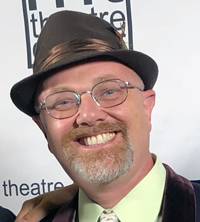
CINCINNATI, Ohio — “I saw how people lost the will to live. … That’s what determined who stayed alive and who didn’t: the will.” -Valeria Juhasz, Survivor of the Volary Death March
In January of 1945, Europe was just months away from Nazi surrender and the end of the Holocaust. But the prisoners had no way of knowing that. Thirteen hundred Jewish female prisoners were sent on a death march from the Shlesiersee camp to Volary, 800 km away in Czechoslovakia through knee-high snow, gnawing hunger, beatings, humiliation and murder. “We don’t have a destination,” one was told. “Our goal is that you will all die along the way.”
With the passing of the generation of Holocaust survivors, institutions like Yad Vashem are desperately recording their first-hand accounts. Sitting comfortably in their homes in Israel and America with flowers and pictures of grandchildren behind them, these survivors recount in clear detail horrors that most of us can scarcely imagine. Their stories are told in personal interviews in short segments lasting only a few minutes each. But each segment packs quite a punch.
As they were marched through dense forests, some did manage to escape. How -or even if- they survived after that, no one knows. If they were caught, they were shot. If they lagged behind, they were shot. If they collapsed from fatigue, they were shot. That was their daily reality.
There were those who took pleasure in others’ pain. One account described an SS officer who would turn his skull-shaped ring into his palm in order to leave its impression in the faces of those he slapped. He said that their only route to freedom was through the smokestacks.
And yet there were also extraordinary acts of kindness such as those who shared what tiny scraps of food they had. If they were to survive, they would not survive alone. Eventually, they were liberated by American soldiers, some of whom were Jewish themselves.
There are those who try to deny this dark chapter in history, ignore it, say that it never happened or that it was exaggerated. We can’t stop others from choosing to live in a world of “alternative facts.” What we can do is tell the truth to those who will listen.
To hear these painful truths told, please see the video above.
*
Eric George Tauber is a freelance writer based in Cincinnati, Ohio.